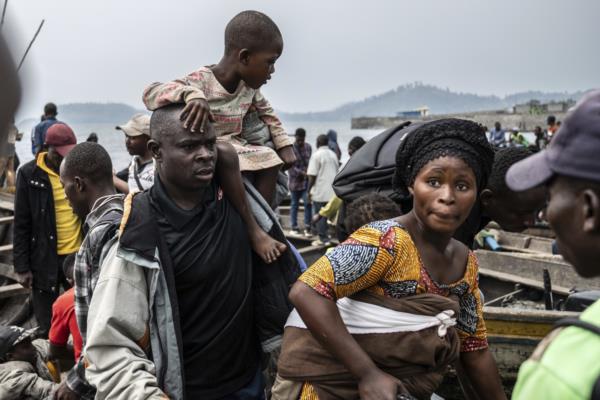
In recent weeks, the M23 rebel group's movement towards Goma, the largest city in eastern Congo, has led to the displacement of over 178,000 individuals, according to the United Nations. The rebels are closing in on Goma, situated on the border with Rwanda, raising concerns about the city's security.
The M23, known for its significant advances, recently seized the town of Minova, a crucial supply route for Goma. This development has heightened tensions in the region, which has been plagued by a long-standing conflict involving numerous armed groups competing for control over the area's abundant mineral resources.
With more than 7 million people already displaced due to the ongoing conflict, the situation in eastern Congo remains one of the world's most severe humanitarian crises. The M23, primarily composed of ethnic Tutsis who defected from the Congolese army years ago, has been a focal point of the conflict.
Accusations have been made against Rwanda for allegedly supporting the M23 rebels, although Rwanda's government has consistently denied these claims. The recent fighting around Minova in South Kivu province has triggered a new wave of mass displacement, forcing thousands of individuals to flee their homes.











Reports from the Nzulo camp on the outskirts of Goma indicate a growing influx of displaced persons seeking refuge. However, as the rebels draw closer, some residents are already leaving the camp in search of safer locations.
The capture of Minova and several other towns by the rebels, as confirmed by provincial authorities, underscores the escalating conflict in the region. The provincial governor of South Kivu revealed that the rebels have also taken control of key mining towns in the area, further complicating the situation.
As the Congolese military acknowledges the rebels' recent advancements in Minova and Bweremana, the security and humanitarian challenges in eastern Congo continue to intensify, leaving many civilians in a state of uncertainty and fear.







